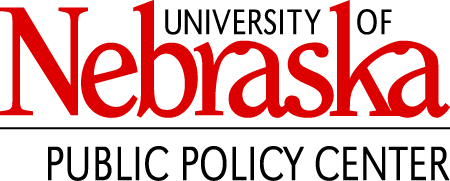Nebraska Disaster Behavioral Health Conference
The Nebraska Disaster Behavioral Health Conference is for psychiatrists, psychologists, social workers, mental health care providers, public health officials, nurses, clergy, emergency managers, and first responders to learn and recognize how to prepare and respond to the psychological effects of disaster and mass casualties.
2012 Conference
July 13, 2012
Embassy Suites Hotel
555 South 10th Street
Omaha, Nebraska 68102
Objectives
1
Describe how professional groups and health care institutes respond to the challenges posed by the tensions between traditional principles of medical ethics and the values underlying public health policy and practice during public health emergencies.
2
Describe how “outside the wire” combat vets differ from ordinary sufferers of PTSD.
3
Identify the typical treatments used for PTSD that need to be modified when treating“outside the wire” vets.
4
Identify the types of combat experiences vets have participated in before deciding treatment.
5
Define the special circumstances in an
International Disaster Behavioral Response using examples of trauma experienced in Haiti.
6
Analyze the challenges and opportunities in disaster behavioral response in Haiti and the lessons learned from that deployment.
Conference Speakers
Larry Dewey, MD
Clinical associate professor at the University of Washington School Medicine and affiliate professor of psychiatry at the Oregon Health & Science University School of Medicine
Larry Dewey is a clinical associate professor at the University of Washington School of Medicine and an Affiliate Professor of Psychiatry at the Oregon Health & Science University School of Medicine. He is the author of War and Redemption, a text on the treatment of PTSD written for clinicians, soldiers, their families, and the interested public. He has treated combat vets from WWII and every subsequent war and conflict for nearly 30 years and was honored as the physician “Health Care Hero 2007” in the State of Idaho in 2007 for his work with veterans. He was raised on a farm in Idaho but graduated from Harvard College in 1975. He obtained his medical degree from Harvard in 1979 and completed a four-year fellowship in psychiatry and medicine at Yale in 1983. He has dedicated his professional life to the treatment of our nation’s veterans.
Presentation Objectives
- Describe how “outside the wire” combat vets differ from ordinary sufferers of PTSD.
- Identify the typical treatments used for PTSD and describe necessary modifications when treating “outside the wire” vets.
- Identify the types of combat experiences vets have participated in before seeking treatment.
Andrew Klatte
Assistant deputy director for the Office of Preparedness, Indiana Division of Mental Health and Addiction and director of Project Aftermath
Andrew Klatte has worked in the field of Mental Health and Developmental Disabilities for 27 years, the past 20 years with the State of Indiana. He graduated from the University of North Carolina–Asheville. Mr. Klatte is currently the assistant deputy director for the Office of Emergency Preparedness, for the Indiana Division of Mental Health and Addiction. He is a nationally known speaker and has presented on the topics of the psychological aspects of terrorism, disaster preparedness, and mental health planning and response. Mr. Klatte is also the director of Project Aftermath, a crisis counseling Program. Project Aftermath has responded to 10 major federally declared disasters in Indiana since 1997. Mr. Klatte was the point person for the mental health teams that were deployed to Mississippi.
Presentation Objectives
- Describe the challenges of providing a Disaster Behavioral Response in an international environment.
- Explain the trauma experienced in Haiti.
- Identify some of the lessons learned from the Disaster Behavioral Response in Haiti.
Julius Landwirth, JD, MD
Adjunct professor at the University of New Haven, a member of the Connecticut Governor’s Steering Committee on Climate Change, and a member of the Connecticut Department of Public Health Task Force on resource allocation During Public Health Emergencies
Julius Landwirth is an adjunct professor with the University of New Haven, a member of the Connecticut Governor’s Steering Committee on Climate Change, and a member of the Connecticut Department of Public Health Task Force on Resource Allocation During Public Health Emergencies. Dr. Landwirth received his MD from SUNY Downstate Medical Center and received his JD from the University Of Connecticut School Of Law. Dr. Landwirth not only served in private practice pediatrics for a number of years, but also served on the Hartford Hospital Ethics Committee, Acting President and Chief Executive Officer at Connecticut Children’s Medical Center, Associate Director of the Yale Interdisciplinary Center for Bioethics, and the chair of the Subcommittee on Law and Ethics Embryonic Stem Cell Advisory Committee with the Connecticut Department of Public Health.
Presentation Objectives
- Identify and discuss specific guidelines for clinical decision making in disasters.
- Describe how professional groups and healthcare institutes respond to the challenges posed by the tensions between traditional principles of medical ethics and the values underlying public health policy and practice during public health emergencies.
Conference Materials

Conference Agenda
Contacts
University of Nebraska Public Policy Center
Disclaimer
This website is part of a coordinated effort on behalf of the U.S. Federal Government and the Nebraska Department of Health and Human Services Division of Public Health, Division of Behavioral Health, and the University of Nebraska Public Policy Center. Funding was made possible [in part] by U3REP190555 from the Office of the Assistant Secretary for Preparedness and Response (ASPR). The views expressed in written materials or publications do not necessarily reflect the official policies of the U.S. Department of Health and Human Services or the Nebraska Department of Health and Human Services, Division of Public Health; nor does mention of trade names, commercial practices, or organizations imply endorsement by the U.S. Government or the State of Nebraska.





